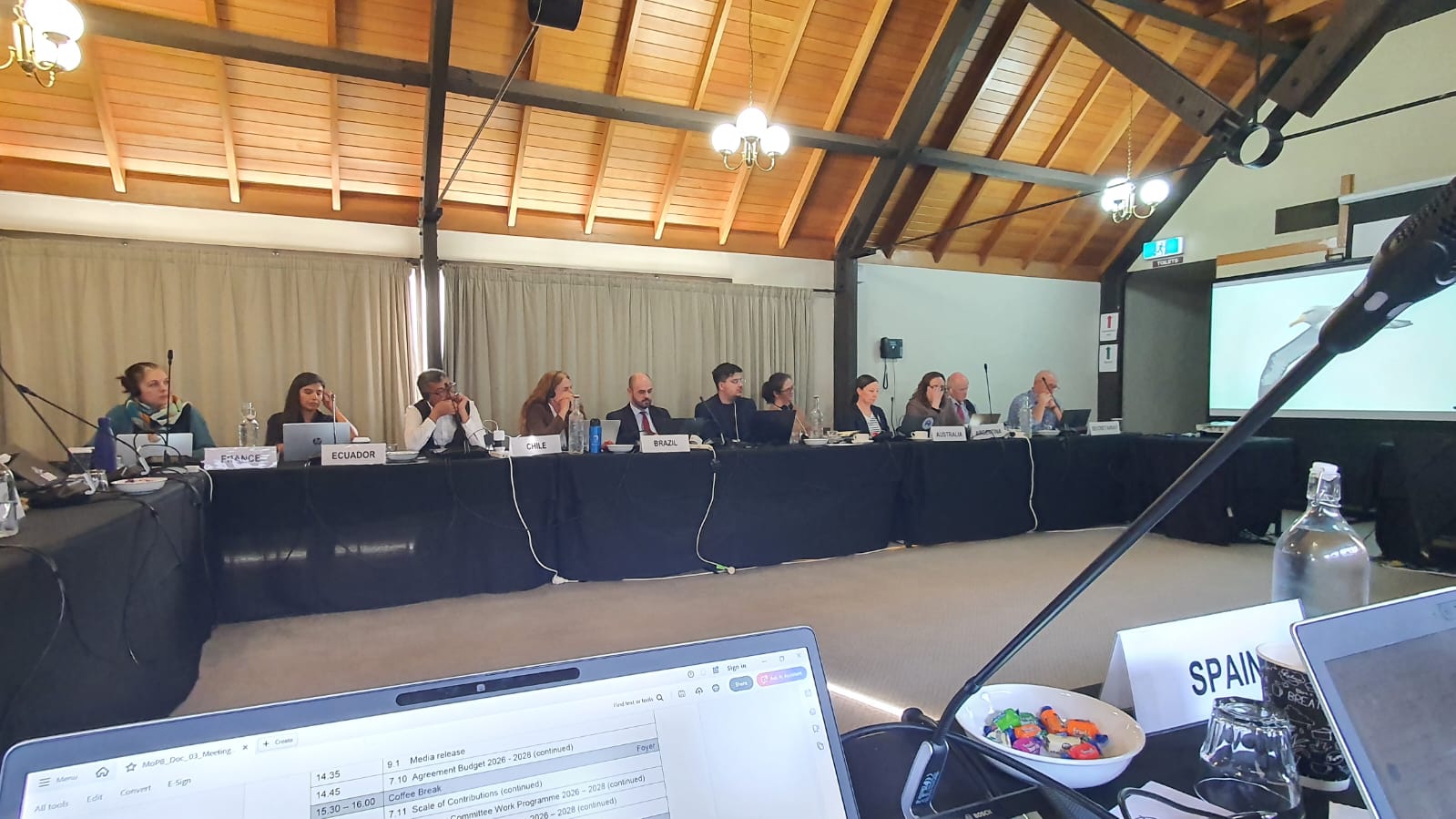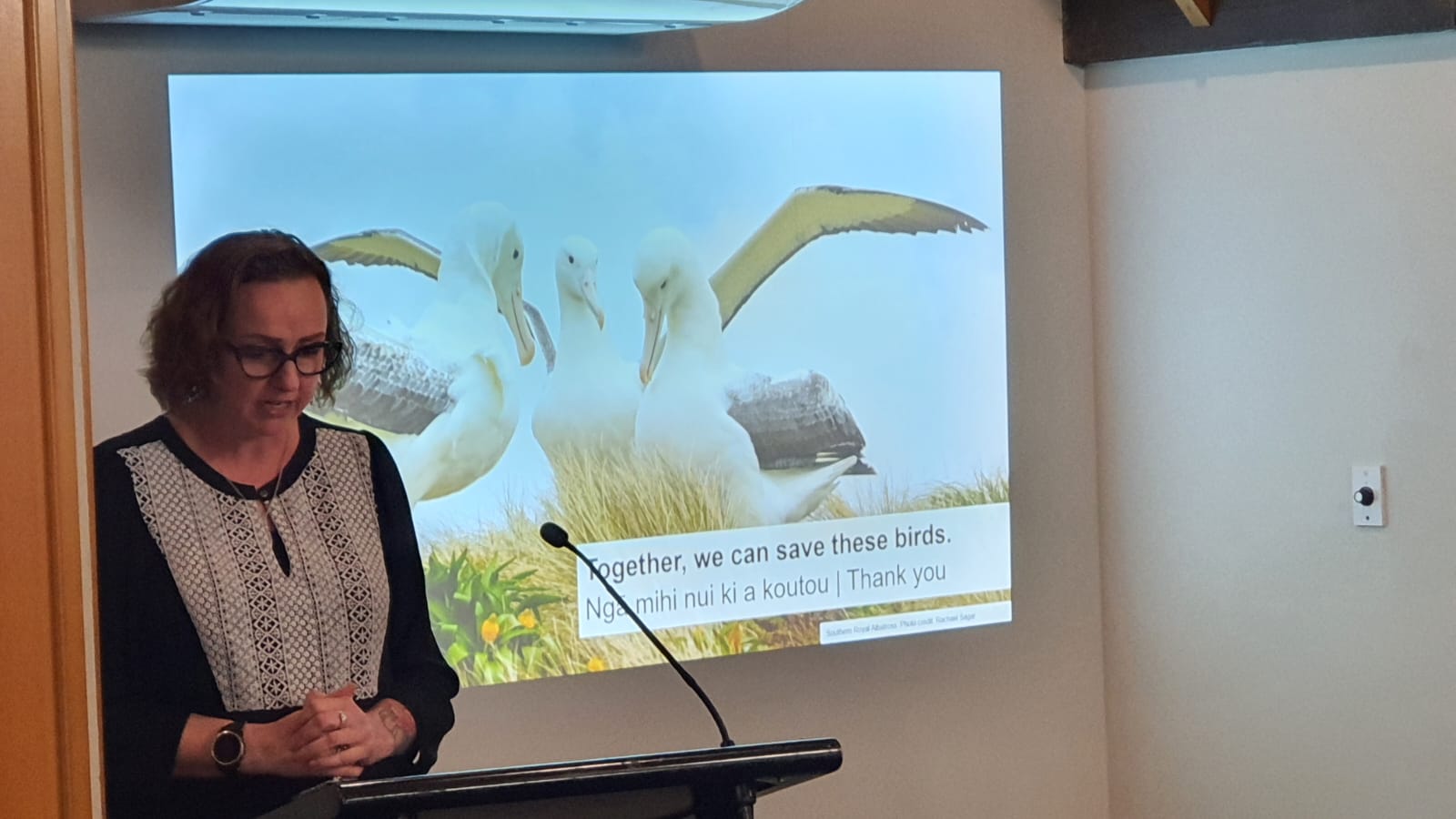 Representatives of some of the 13 ACAP Parties attending MoP8, photograph by Johan de Goede
Representatives of some of the 13 ACAP Parties attending MoP8, photograph by Johan de Goede
The Eighth Session of the Meeting of the Parties (MoP8) of the Agreement on the Conservation of Albatrosses and Petrels (ACAP), held from 19 to 23 May in Dunedin, New Zealand, concluded with a strong commitment to take urgent action to address the conservation crisis faced by albatross and petrels. The meeting was chaired by Danica Stent of New Zealand.
In her opening address, Ms Stephanie Rowe, Deputy Director-General of Biodiversity, Heritage, and Visitors of New Zealand’s Department of Conservation, applauded the world-leading research and technical guidance ACAP has produced over the last 20 years. She emphasised, however, that “advice needs action”, and international collaboration is essential to addressing the threat posed by fisheries bycatch. Ms Rowe wished parties success “to advance ACAP’s mission to reverse the decline of these treasured species”.

Stephanie Rowe gives her address, photograph by Johan de Goede
In 2019, ACAP's Advisory Committee highlighted a conservation crisis with hundreds of thousands of albatrosses and petrels dying every year as a result of fisheries operations. The implementation of ACAP’s Best Practice seabird bycatch mitigation advice by ACAP Parties, non-Party Range States and, critically, Regional Fisheries Management and Conservation Organisations was identified as essential for the conservation of these majestic seabirds.
ACAP has developed a comprehensive range of Best Practice Advice guidelines and fact sheets containing proven mitigation measures that can be implemented by coastal States and distant water fishing nations, and other entities to reduce seabird bycatch. These are available in multiple languages and can be accessed through the ACAP website.
The Meeting of the Parties recognised the need to renew efforts to improve the uptake of ACAP Best Practice Advice. The Meeting adopted a Resolution declaring that new evidence shows that the conservation crisis facing albatrosses and petrels due to the threat of fisheries bycatch is ongoing. The Parties agreed to allocate funding in the Advisory Committee Work Programme to implement the Communications Strategy to communicate more effectively the conservation crisis facing albatrosses and petrels, and the solutions available.
Dr Michael Double, Vice Chair and the Chair of the ACAP Advisory Committee, in his report to the Parties, emphasised the declining overall conservation status of ACAP-listed species. Key progress of the past triennium included continued development of seabird bycatch mitigation Best Practice Advice, funding of Small Grants and Secondments projects, and provision of advice on High Pathogenicity Avian Influenza (HPAI).
Parties agreed to increase the Agreement’s budget and member contributions for the 2026-2028 triennium. Parties recognised that fully and sustainably funding the Advisory Committee Work Programme is integral to addressing the drivers behind the worsening overall conservation status of ACAP species.
This meeting also marked the end of Dr Christine Bogle’s term (2019-2025) as Executive Secretary. Parties paid tribute to Dr Bogle’s unwavering support during her term. Parties also welcomed Mr Jonathon Barrington (Australia) as the new Executive Secretary-designate. Dr Bogle congratulated Mr Barrington on his appointment, highlighting their long-standing professional relationship and his valuable support.
ACAP Secretariat, 30 May 2025

 English
English  Français
Français  Español
Español